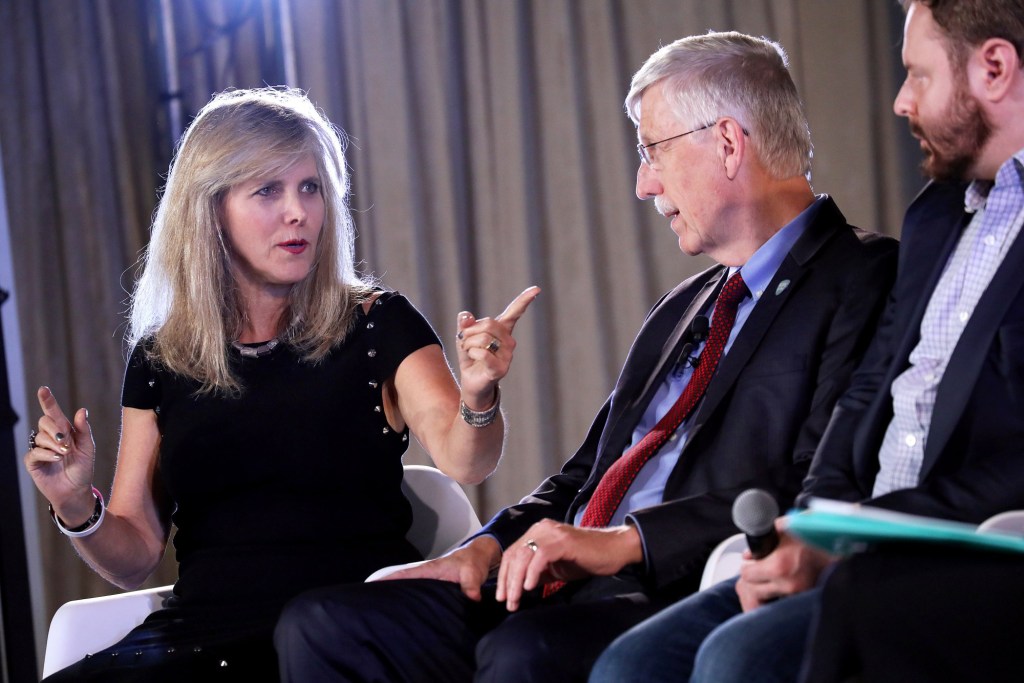
Ronnie Cohen | (TNS) KFF Health News
Soon after the U.S. Supreme Court issued its Roe v. Wade abortion ruling in 1973, Laura Esserman used her high school graduation speech to urge her classmates to vote for the Equal Rights Amendment to expand women’s access to property, divorce and abortion.
Five decades later, with 14 states banning abortion in almost all circumstances, the University of California-San Francisco breast cancer surgeon has once again taken up the fight for women’s reproductive rights. Since 2021, when Texas prohibited most abortions, she has boycotted the San Antonio Breast Cancer Symposium — a conference she had regularly attended, and frequently headlined, for 34 years.
“People are passing laws that are legislating what should be a medical decision,” she said. “And I am objecting in whatever way I can.”
Esserman and other physicians have urged their colleagues and medical societies to move all professional meetings out of states that criminalize abortion. Short of a move, they have called for boycotts of the events.
In November, Esserman expects 300 health providers and researchers to meet in San Francisco for an alternative breast cancer conference.
The effort to move annual conferences — which pump substantial revenue into local communities and attract many of the nation’s 1.1 million physicians and other medical professionals looking to network, satisfy continuing education requirements, and learn about the latest developments in their fields — has led to some notable relocations.
The American College of Obstetricians and Gynecologists moved its 2023 annual meeting and an estimated 4,000 participants from New Orleans to Maryland in response to Louisiana’s abortion ban. An estimated 3,600 health care professionals attended the American Association of Immunologists’ conference in Chicago this year, after the group moved the meeting from its planned Phoenix location in response to Arizona’s restrictive abortion law.
“In addition to causing great physical and psychological harm to patients,” the association said in a statement, abortion bans “threaten irreparable damage to the private and trusted relationship between medical professionals and their patients.”
Yet even doctors who agree about reproductive rights disagree about how to express dissent. Some argue it’s more important than ever to visit states where abortion has been outlawed, to learn about the issues surfacing because of the laws, and to help people organize against them.
“We cannot support penalizing communities that are already harmed by this legislation,” said obstetrician and gynecologist Jamila Perritt, president and CEO of Physicians for Reproductive Health. “As opposed to withdrawing support, what we’re calling for is actually flooding those folks with support.”
Physicians for Reproductive Health has been providing security for doctors targeted by anti-abortion activists, Perritt said, and training doctors to teach abortion care in abortion-restricting states and to testify to state legislatures about the need for abortion access.
“There is a lot to be gained by coming to these states, supporting us, seeing the reality, and bringing these conversations into your conference space so that you can better understand our reality, rather than just boycotting that state completely, which is not helpful,” said Bhavik Kumar, chief medical officer for Planned Parenthood of Greater Ohio and a medical director for Planned Parenthood Gulf Coast in Texas and Louisiana.
Since the Supreme Court’s 2022 decision to overturn Roe and eliminate a federal constitutional right to abortion, all but nine states and Washington, D.C., have imposed abortion restrictions, according to the Guttmacher Institute.
The San Antonio Breast Cancer Symposium continues to be held in Texas, where abortion is banned in almost all instances, and boycott calls do not appear to have slowed turnout. In fact, the number of in-person attendees increased from just under 8,000 in 2019 to 8,220 last year, organizers said.
Breast oncologist Virginia Kaklamani, a University of Texas Health Science Center-San Antonio professor of medicine who co-directs the San Antonio symposium, plans to stay in Texas. She doesn’t believe in boycotts, though she does share boycott proponents’ concerns. Despite exceptions, such as the American Association of Pro-Life Obstetricians and Gynecologists, doctors have by and large spoken against abortion restrictions.
“I think the way to handle it is to talk to our elected officials, to go out and vote. Moving meetings from one place to another is not going to help,” Kaklamani said. “You stay and you fight for your patients.”
Esserman recognizes that boycott calls have not had significant impact, but she feels compelled to keep applying pressure anyway.
She can’t help but think about a patient who recently came to her San Francisco practice nine weeks pregnant and with an aggressive breast cancer. If she were to continue the pregnancy, she would be ineligible for the most effective treatment. “Where I live, she has a choice,” Esserman said. In some states, she would have no choice but to carry the pregnancy to term.

















































